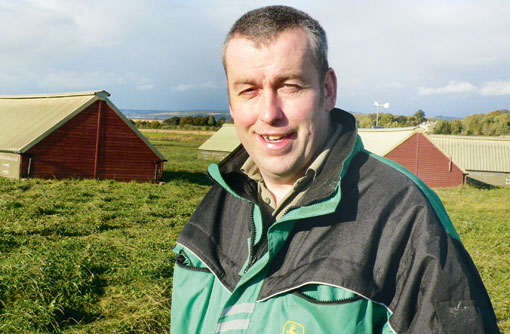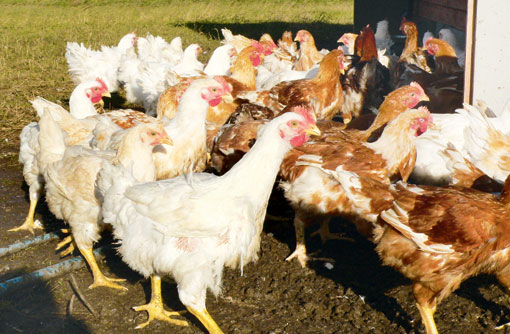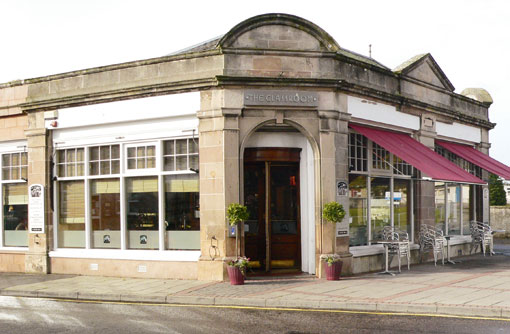Juggling act for Scottish producer

Willie Lean works across the whole food chain, from his day job as a poultry farmer to serving fresh produce in his restaurant three times a week.
Mr Lean has built a highly diversified poultry and arable business in Nairn, 10 miles outside Inverness in the Scottish Highlands. But despite the success of his Killara chicken business, he believes many poultry farmers are reaching breaking point.
“We’re under immense pressure to cut costs because we aren’t being paid the amount we need by the supermarkets,” he says. “It’ll come to a point where they’ll squeeze producers so hard they just have to close the doors.”
As well as covering running costs, Mr Lean is adamant there needs to be more profit to pay for future investment.
“My sheds are still considered new at about 10 years old. But most sheds in this area are 30, or even older. When are supermarkets going to realise these sheds cannot go on forever?”

Starting in 1997 with one 40,000 bird shed, Mr Lean doubled capacity in 2004 to 80,000. But due to changes in welfare legislation his last crop, combined across the two sheds, was only 70,000 birds and his next will be just 66,000.
“These constantly decreasing stocking rates put even more pressure on the margin,” he says.
In the same year (2004), Mr Lean started with 12 mobile sheds for organic birds in a nearby rented field. That number has now risen to 52 sheds, producing 4,500 organic birds every week.
|
|---|
Up until now, Mr Lean has been supplying those birds to Vion. But, due to Vion ceasing production of Scottish organic chicken, the last batch will leave the farm on the 18 March. The land is then coming out of organic, so that Mr Lean can grow 4,000 free-range birds for Tesco through the 2 Sisters Food Group.
A breeder farm that used to produce 20,000 organic eggs a week was closed at the end of the last crop.
Constant effort
All the businesses require a constant effort to cut costs and improve efficiency.
Manure from two crops a year is used on the farm’s own 100ha (250 acres) of arable land, where winter wheat and spring barley are grown. Applied at about 10t/ha, this reduces the need for artificial fertiliser to just 50kg/ha.
The rest of the manure is sold to neighbouring arable farms at £20/t, providing £4,000 per crop extra income.
And manure from the organic sheds is composted on site and then goes to a local organic vegetable co-op, This Is Organics.
All washing and disinfecting are done by Mr Lean and his staff, including for neighbouring chicken and pig units. Cattle sheds, grain stores and even driveways in the area also feel the benefit of his high pressure cleaners.
Red tape
In addition to the financial pressures, the other main problem is the burden of regulations.
Filling out paperwork for Soil Association accreditation, the Red Tractor Farm Assured Poultry Scheme and IPPC licensing is one of the biggest burdens Mr Lean faces and the inability of these organisations to share information causes him increasing frustration.
“Inspectors come in and tell you what to do, but they are more interested in paperwork than birds on the ground,” he suggests. “I feel a lot of the Red Tractor regulation is double regulation. If you’ve got an IPPC licence most of it is already covered.”

Catering for success
The Classroom Bistro in Nairn is probably the biggest success story for the business in recent years.
Mr Lean took it over two years ago and since then has doubled turnover each year. “We supply all local produce, including our neighbour’s pork, and beef from two farms down the road. We also get local veg, local ice-cream and even local garlic.
“It’s more expensive, but we name the farms on the menu and explain that the money goes straight to the farmer. If you keep the thing local, then you keep the money in your own area,” he says.
Devoting three days a week to the restaurant, Mr Lean has also seen The Classroom win kudos among online “foodies”, gaining top ranking on a local trip adviser website.
It has also given him a useful insight into how the big supplier’s price their chicken, enabling him to see what they sell for compared with the farmgate price he receives.
